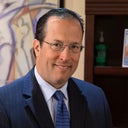How Long Before Exercising After Otoplasty?
I scheduled an otoplasty for next week, and I was wondering how long should I wait before start doing exercises such as pilates or power plate?
I scheduled an otoplasty for next week, and I was wondering how long should I wait before start doing exercises such as pilates or power plate?



What’s trending? Who’s turning heads? Which TikTok myths need busting? We’ve got you. No fluff, no gatekeeping—just real talk. Get our free, unfiltered newsletter.